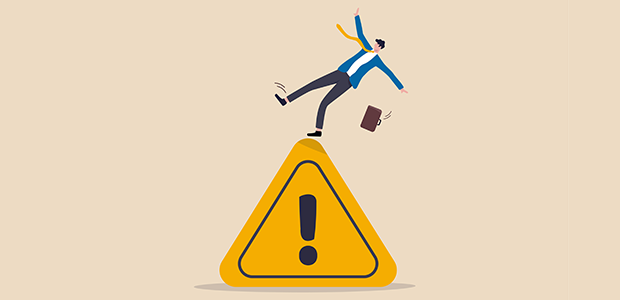
How startups can stay ahead of premises liability
Starting a business is exciting, but it comes with its fair share of responsibilities. One of those is something that is easy to overlook, which is premises liability.
What is Premises Liability?
Premises liability refers to a business owner’s responsibility for keeping their property safe. If someone gets injured while on your property, and it can be shown that their injury was due to negligence on your part, you might find yourself liable. That could be anything from a customer slipping on a freshly mopped floor to someone tripping over equipment that was not properly put away.
Let’s take an example. Imagine you run a small bakery. Someone spills a cup of coffee on the floor, but you are busy serving customers and forget to clean it up. A customer walks in, slips, and gets hurt. In this case, if you did not put up a “Caution: Wet Floor” sign or clean it promptly, you could be held responsible for their injury.
This is not something any startup wants to deal with, especially when you're just getting off the ground. Lawsuits can drain your finances, time, and energy, and you could also end up with a tarnished reputation.
Prioritise Safety
To stay ahead of premises liability, your first job is to prioritise safety. You are responsible for making sure that your property is safe for everyone who enters. This does not mean wrapping everything in bubble wrap, but it does mean taking care of obvious hazards.
For example, if you know the front step to your building is cracked, get it fixed before it becomes a problem. If you are operating a small retail shop, make sure that clutter does not pile up in the aisles, and keep an eye on spills.
Train Your Employees to Stay Alert
You cannot be everywhere at once, which is why your employees play a huge role in keeping things safe. They are often the first line of defense when it comes to spotting hazards. So, make sure they are properly trained.
For example, if you are running a café, train your staff to immediately clean up spills and mark wet areas with caution signs. Or if you manage an office, make certain that employees know how to report any equipment issues or electrical problems that could lead to accidents.
Make safety a team effort. Your staff should know it is part of their job to keep an eye out for anything that might put customers or other employees at risk.
Use Clear Warning Signs
Sometimes, hazards cannot be fixed right away. That is where warning signs come in. If there is something like a slippery floor, post signs so people know to be cautious. Clear signs give everyone a heads-up, and if an accident does happen despite the warning, it is much harder for someone to claim negligence.
Imagine you own a small gym, and one of the machines is temporarily out of order. Instead of just hoping no one uses it, put up a big sign that says, "Machine Under Repair." It is a small action that can make a big difference.
Get the Right Insurance
Even with the best preparation, accidents happen. This is why having the right insurance coverage is essential. General liability insurance can help cover medical expenses, legal fees, and other costs if someone gets injured on your property. Without it, one lawsuit could cripple your startup.
So, sit down with an insurance agent and make sure your policy covers everything you need. You do not want to be caught off guard when you could have been protected.
Premises liability might not be the most exciting part of running a startup, but it is something you cannot afford to ignore. Keep your business safe, and you will be able to focus on what really matters, which is growing your startup.

